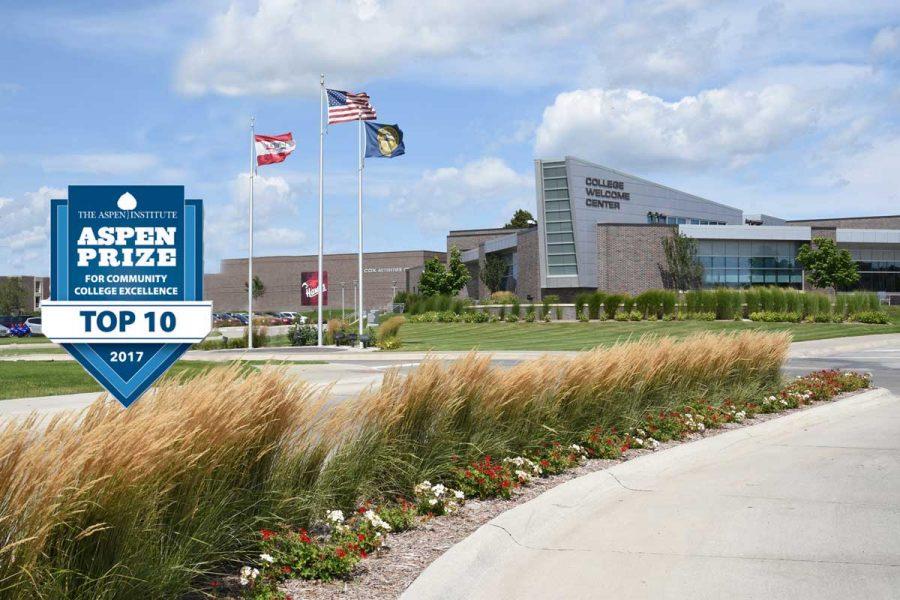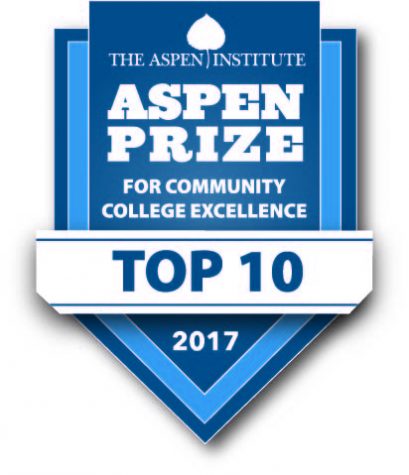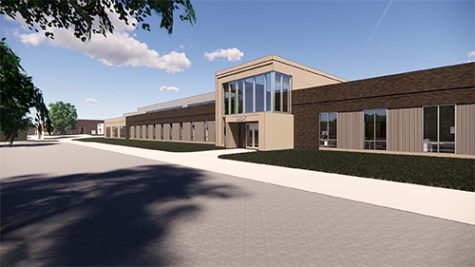Northeast named among ten finalists for Aspen Prize for community college excellence
September 13, 2016
WASHINGTON, D.C. – Dr. Michael Chipps often says that Northeast Community College is one of the best rural community colleges in the United States. Now the president of the institution based in Norfolk, Nebraska, has documentation to support that claim.
Northeast was named today as one of ten finalists for the 2017 Aspen Prize for Community College Excellence, the nation’s preeminent recognition of high achievement and performance in America’s community colleges.
Northeast now enters the last stage of the competition for the $1 million prize fund that will be awarded in March 2017 in Washington, D.C. to the winner and up to four finalists with distinction. (See complete list of finalists below.)
“We were so pleased to be included in Aspen’s Top 150,” Chipps said. “Now to be included in the Top Ten is outstanding, not just for the College, but most importantly for our amazing students and outstanding faculty and staff! This recognition is reflective of the incredible work that goes on at Northeast each and every day.”
The Prize has been awarded every two years since 2011 by the Aspen Institute, a Washington, DC-based educational and policy studies organization which recognizes outstanding institutions selected from an original pool of more than 1,000 public community colleges nationwide.
The focus of the Prize is assessing community colleges’ achievements in terms of student success in four areas: student learning, certificate and degree completion, employment and earnings for graduates, and access and success for minority and low-income students.
“Northeast Community College utilizes data in some truly innovative ways, particularly to shape its curriculum to reflect job market needs,” said Joshua Wyner, executive director of the Aspen Institute’s College Excellence Program in Washington, D.C. “By using labor market statistics to inform new and existing programs, they’re responding to the needs of the region and training students with the skills needed for well-paying, in-demand jobs.”
The Aspen Institute selected Northeast as of the nation’s top community colleges for many reasons, including:
- A 60 percent three-year graduation/transfer rate, well above the national average of 39 percent
- In response to student feedback, a complete redesign of its academic advising program, including intensive faculty training and plans to shift to a team advising structure comprised of both
first-year advisors and program faculty with mandatory advising - 99 percent of its students are employed or continuing their education within six months after graduation
- 85 percent of surveyed employers are satisfied with the skills of graduates they have employed
Chipps said, “There are so many community colleges who serve a diverse student body very well. However, there are definitive measures that the Top Ten community colleges have in common to better assure student success. Northeast Community College, in particular, is so intent, so passionate inside and outside of the classroom to create an environment where students don’t have a choice but to succeed.”
This fall, the Aspen Institute will conduct site visits to each of the ten finalist institutions. Following a rigorous review process, a distinguished Prize Jury of higher education experts will select a grand prize winner and finalists with distinction.
The 2015 Aspen Prize for Community College Excellence was awarded to Santa Fe College in Gainesville, Florida. In 2013, Santa Barbara City College (California) and Walla Walla Community College (Washington) were co-winners. In 2011, Valencia College (Florida) was the inaugural Prize winner. According to the Prize rules, former winners were not eligible to reapply this cycle.
The 2017 Aspen Prize Finalists (listed in alphabetical order):
Two colleges have been named finalists in four consecutive Prize cycles (indicated with *) and two others were finalists for a second time (indicated with #)
- Anoka-Ramsey Community College – Coon Rapids, MN
- Broward College – Fort Lauderdale, FL#
- Chaffey College – Rancho Cucamonga, CA
- Indian River State College – Fort Pierce, FL#
- Lake Area Technical Institute, Watertown, SD*
- Northeast Community College – Norfolk, NE
- Contact: Jim Curry, 402-844-7063, [email protected]
- Odessa College – Odessa, TX
- Pasadena City College – Pasadena, CA
- San Jacinto College – Pasadena, TX
- West Kentucky Community and Technical College, Paducah, KY*
The Aspen Institute’s College Excellence Program aims to advance higher education practices, policies, and leadership that significantly improve student outcomes. Through the Aspen Prize for Community College Excellence, the New College Leadership Project, and other initiatives, the College Excellence Program works to improve colleges’ understanding and capacity to teach and graduate students, especially the growing population of low-income and minority students on American campuses. For more information, visit www.aspeninstitute.org/college-excellence. The Aspen Prize is funded by the Joyce Foundation, the Siemens Foundation, and the Kresge Foundation.
Northeast Community College is a comprehensive community college that provides vocational/technical, liberal arts, college transfer, and continuing education. It is the only community college in Nebraska with one-and two-year vocational, liberal arts, and adult education programs all on one main campus. The College also has three extended campuses and two regional offices to serve the needs of off-campus students in the 20-county service area. Northeast is accredited by the Higher Learning Commission to award two-year Associate of Arts, Associate of Science, Associate of Applied Science, and Associate in Nursing degrees, one-year diplomas, and certificates.
Northeast Community College’s eleven-member Board of Governors has approved a five-year strategic plan, Vision 2020, that includes four primary goals – Increase student success; increase student access; provide a globally competitive workforce; and develop and maximize resources.




















